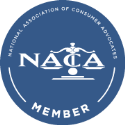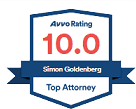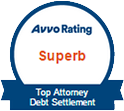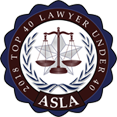What Are The Differences Between Federal & Private Student Loans?
New York Student Loan Attorneys
Although the core differences between Federal and Private Student loans has much to do with banking, guarantors, originators, and loan issuers, the practical differences to a borrower mostly pertain to the related benefits and expenses of each loan type. Typically, federal student loans offer benefits, such as loan forgiveness, many types of forbearance and deferments, and generous income-based repayment options, for which are unavailable for most private loans. As a result, private loans tend to be more costly for some borrowers.
Federal and private loans not only have different payment options, but they also require completely different strategies when you seek to resolve them from default. For example, a Loan Consolidation or Rehabilitation might be only available on eligible federal loans, while the possibility of settling a private student loan (in default) for a substantial reduction is much more likely then negotiating a sizable reduction on a federal loan. Sometimes, a defaulted private loan can be be settled to eliminate interest and some principal, while in federal loan, a settlement (if available) is usually limited to reduction a portion of the interest and collection fees, and rarely provides much of a principal reduction, if any.
Want to settle your student loans? Speak to a student loan settlement lawyer today!
Federal Student Loans vs. Private Student Loans
The chart below demonstrates many of the differences between the two student loan categories:
|
FEDERAL STUDENT LOANS |
PRIVATE STUDENT LOANS |
|
You only start the repayment of your loans after you have graduated, left school, or changed your status to less than that of a part-time student. |
Most private loans will demand that you start to make payments while you are still in school. |
|
A federal loan will provide you with a fixed interest rate, and this rate is usually lower than that of private loans; it is also significantly lower than that of credit card rates. |
Private loans have variable interest rates, which sometimes can assume absurd percentages; eventually, variable rates can increase your total repayment amount. |
|
Students attending undergraduate colleges may qualify for subsidized loans, which are loans in which the government is responsible for paying the interest if you are at least a part-time student. |
When taking out a private loan, you are the only one responsible to pay for the interest since these types of loans are not subsidized. |
|
Credit checks are not needed for federal student loans, with the exception of PLUS loans. As a result, federal student loans may help you maintain a good credit score. |
Many private student loans use credit records to determine the cost of the loan one will be granted. |
|
Generally, a cosigner is not needed to obtain a federal student loan. |
It is highly probable that in order to obtain a private student loan, there must be a cosigner. |
|
Taxable interest. |
Not taxable interest. |
|
You can combine all of your loans into one bill—a Direct Consolidation Loan. |
Private loans cannot be combined into one bill; therefore, you will not be eligible for a Direct Consolidation Loan. |
|
If you are experiencing difficulty paying back your loans, there are options (such as deferment plans) available to you to make the process less burdensome. |
Private student loans offer no such options to help you when the going gets tough. |
|
Federal student loans do not impose any prepayment penalty fees. |
Some private student loans do impose prepayment penalty fees. |
|
Loan forgiveness programs are available to dismiss a portion of your loans (this applies to persons that work in public service). |
In most instances, you will not be offered loan forgiveness programs of any sort if you choose a private student loan. |
|
A federal student loan ombudsmen may be accessable in the event that a borrower feels that a federal loan servicer is mishandling their file. |
Someone from the Consumer Financial Protection Bureau may be able to assist you with your questions and concerns. |
Student Loan Lawyers New York
If you are struggling with federal or private student loans, contact our law firm to learn how we can assist. Our lawyers have experience with nearly every type of student loan debt, and we have dealt with almost every major student loan debt collector and servicers. If you live in New York, call us for your free phone evaluation.
Disclaimer: We are a private debt relief law firm and are not associated with the Department of Education or any governmental entity. Our lawyers help people in New York find solutions to their student loan debts. Any holder of a federal loan may seek to resolve their loans without hiring an attorney. The information on this page is not legal advice and as such should not be relied upon. We do not guarantee it's accuracy, and the validity of the information might change over time. Speak to an attorney for advice regarding your matter, or for more information, visit the official Student Aid Website at studentaid.ed.gov.











